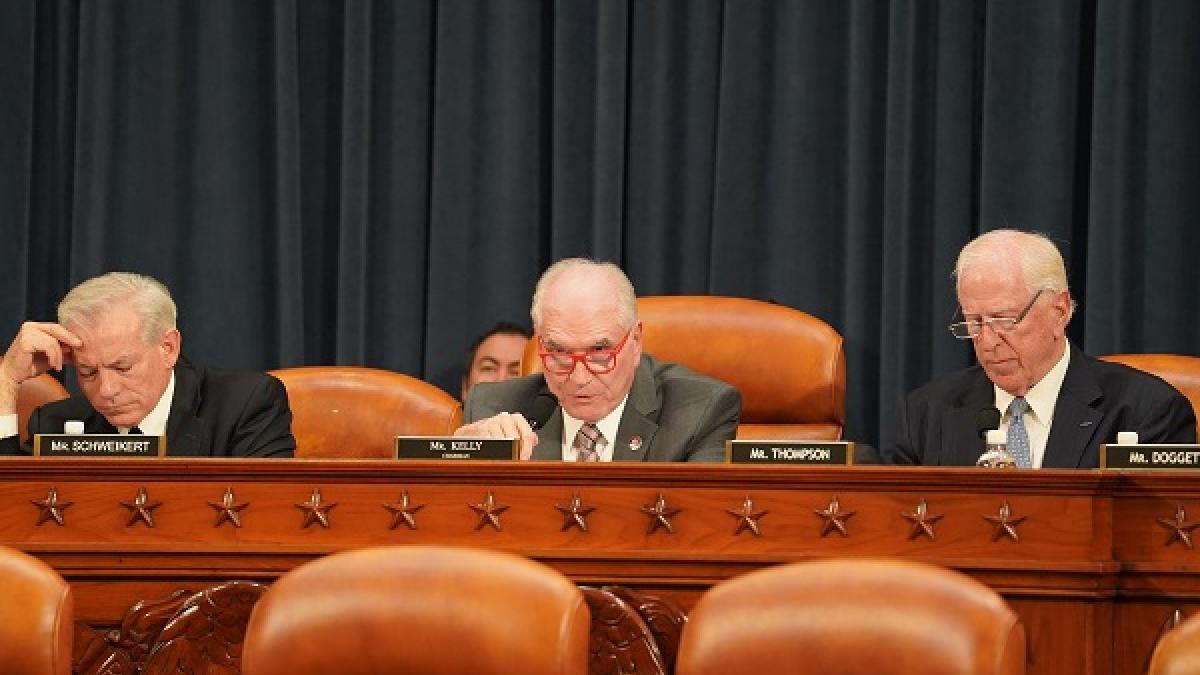Kelly applauds passage of "Tax Relief for American Families and Workers Act"

WASHINGTON, D.C. -- Today, U.S. Rep. Mike Kelly (R-PA), Chairman of the Ways and Means Subcommittee on Tax, voted in favor of the Tax Relief for American Families and Workers Act, bipartisan legislation that promotes the financial security of working families, boosts growth and American competitiveness, and strengthens communities and Main Street businesses.
The bill overwhelmingly passed the House of Representatives Wednesday night by a vote of 357-70. It now goes to the Senate for consideration.
"This vote is a major step forward toward extending the 2017 tax cuts that spurred the greatest American economy in a half-century," said Rep. Mike Kelly (R-PA), Chairman of the Ways & Means Subcommittee on Tax. "This package includes pro-growth tax policies, including the critical research & development expensing provision so American companies can invest and grow here at home. It allows American companies and workers to be more competitive with China. And, it boosts the Republican-created Child Tax Credit, which strengthens and supports families. This deal locks in $600 billion in proven pro-growth, pro-American policies that will give American companies a major boost in the years to come."
The Tax Relief for American Families and Workers Act of 2024:
- Supports working families with an enhanced Child Tax Credit
- Expands innovation and competitiveness with pro-growth economic policies like Research & Development (R&D) expensing
- Builds up Main Street by cutting red tape and rebuilds communities struck by disasters with tax relief
- Enhances the Low-Income Housing Tax Credit
- Eliminates fraud and waste by ending the Employee Retention Tax Credit program
BACKGROUND
The Tax Relief for American Families and Workers Act of 2024:
Supports Working Families with an Enhanced Child Tax Credit
- Expand access to child tax credit: phased increase to the refundable portion of the child tax credit for 2023, 2024, and 2025.
- Eliminate penalty for larger families: ensure the child tax credit phase-in applies fairly to families with multiple children.
- One-year income lookback: flexibility for taxpayers to use either current- or prior-year income to calculate the child tax credit in 2024 or 2025, similar to bipartisan action taken six times in the past 15 years.
- Inflation relief: adjust the tax credit for inflation starting in 2024.
Expands Innovation and Competitiveness with Pro-Growth Economic Policies
- Research & Development (R&D) expensing so businesses of all sizes can immediately deduct the cost of their U.S.-based R&D investments instead of over five years – encouraging American innovation and improving our competitive position versus China and the rest of the world.
- Interest deductibility: continued flexibility for businesses forced to borrow at higher interest rates to meet their payroll obligations and expand their operations.
- 100 percent expensing: restore full and immediate expensing for investments in machines, equipment, and vehicles.
- Taiwan double tax relief: strengthen America’s competitive position with China by removing the current double taxation that exists for businesses and workers with a footprint in both the United States and Taiwan.
Builds Up Main Street and Rebuilds Communities Struck by Disasters
- Expand small business expensing cap: increase the amount of investment that a small business can immediately write off to $1.29 million, an increase above the $1 million cap enacted in 2017.
- Cut red tape for small business: adjust the reporting threshold for businesses that use subcontract labor from $600 to $1,000 and index for inflation – the first update to the threshold since the 1950s.
- Help families get back on their feet with disaster tax relief covering recent hurricanes, flooding, wildfires, and the Ohio rail disaster.
Increases supply of low-income housing by enhancing the Low-Income Housing Tax Credit, a public-private partnership with a proven track record, with increased state allocations and a reduced tax-exempt bond financing requirement.
Eliminates Fraud and Waste by Ending the Employee Retention Tax Credit Program
- Saving over $70 billion in taxpayer dollars by accelerating the deadline for filing backdated claims to January 31, 2024 under the COVID-era employee retention tax credit – a program hit by major cost overruns and fraud.